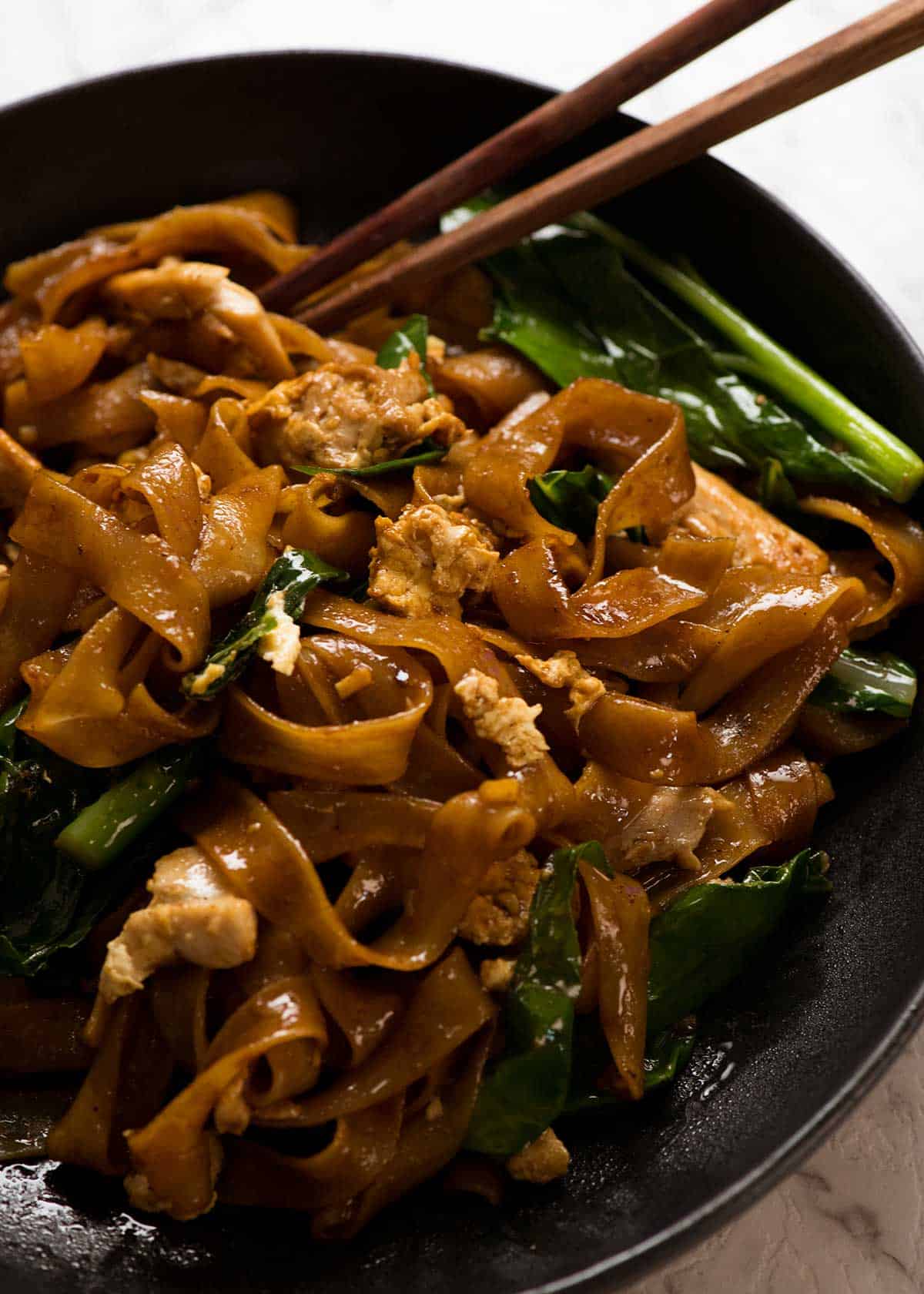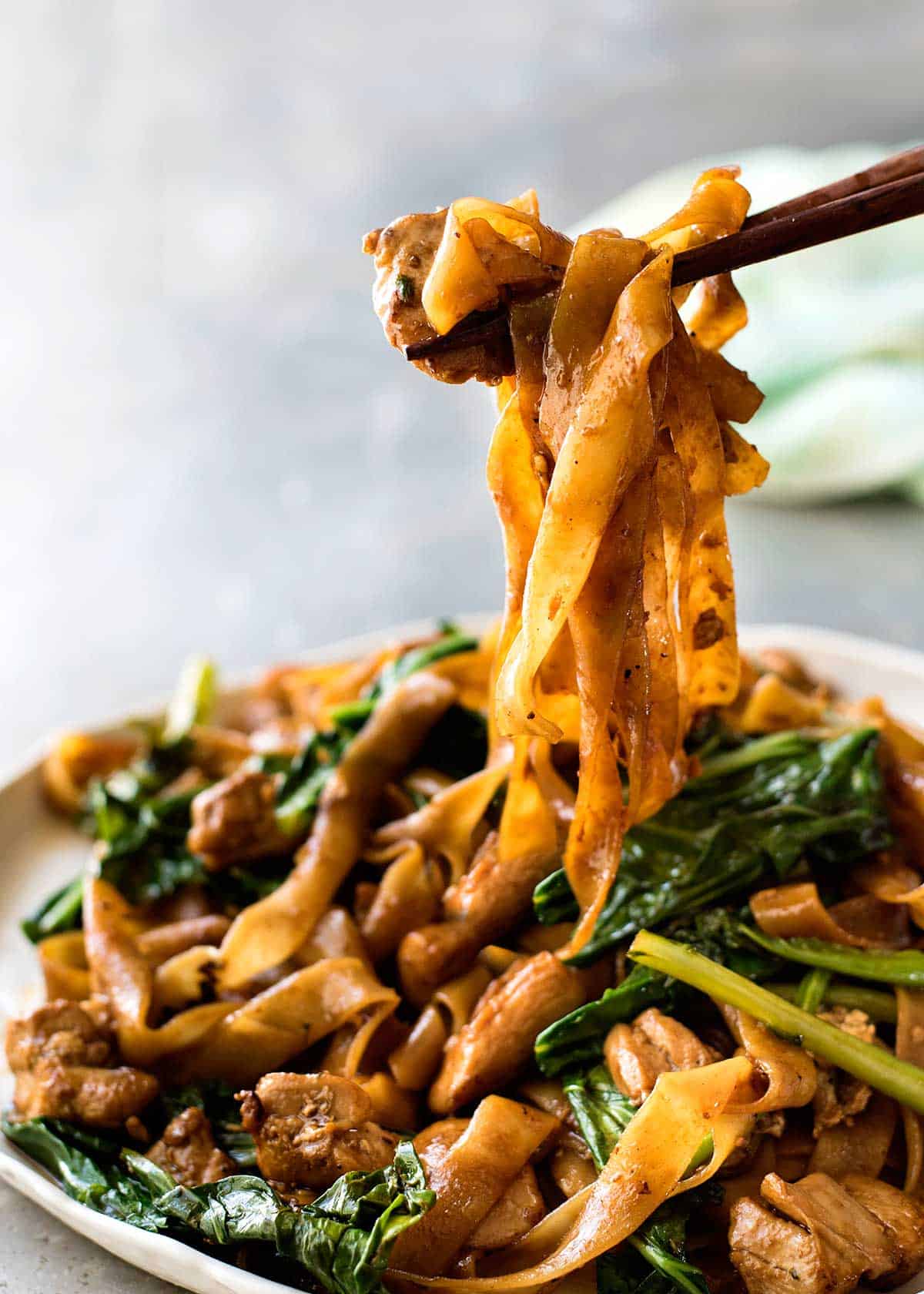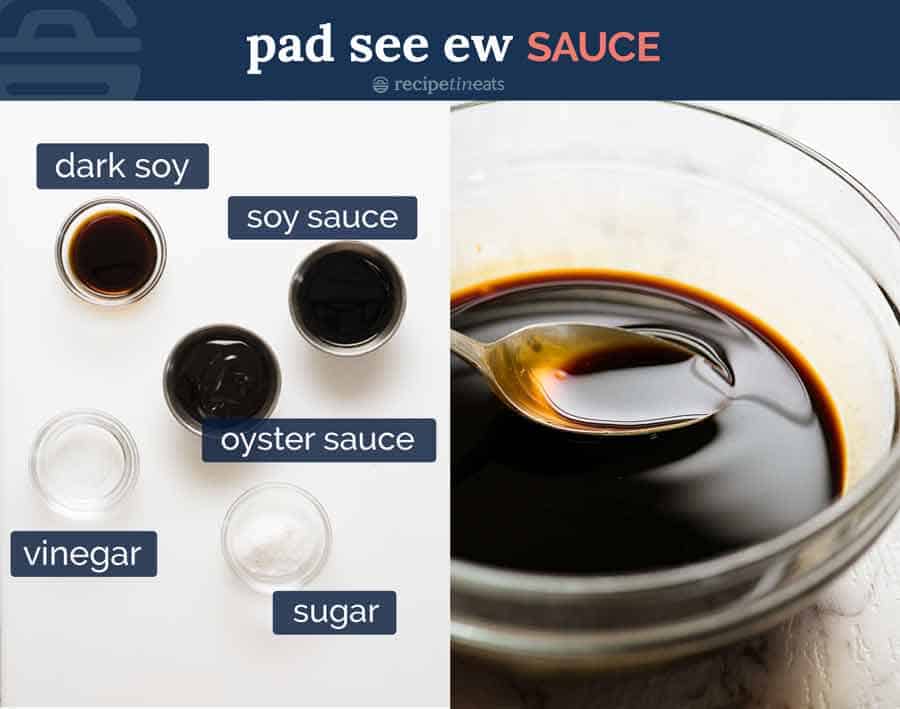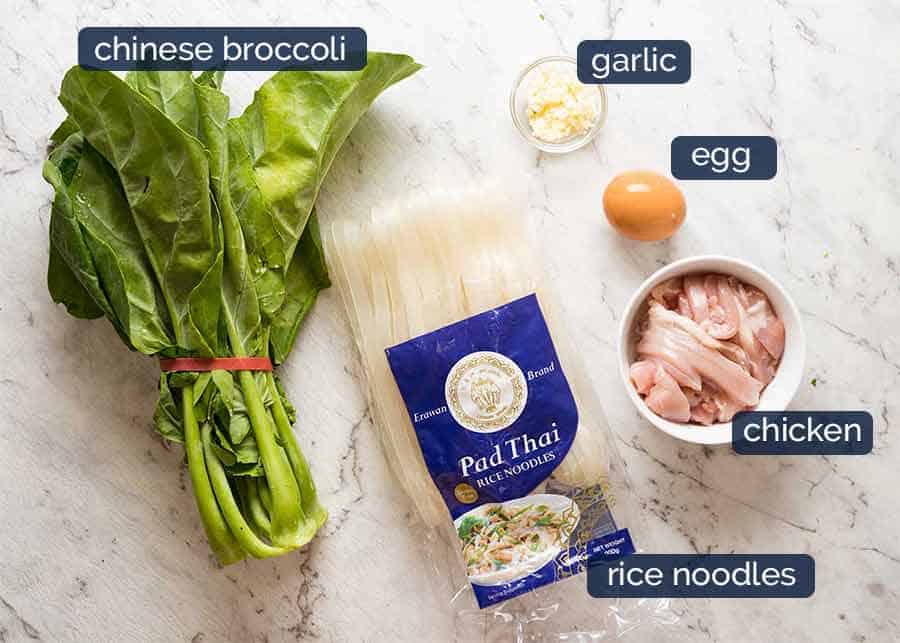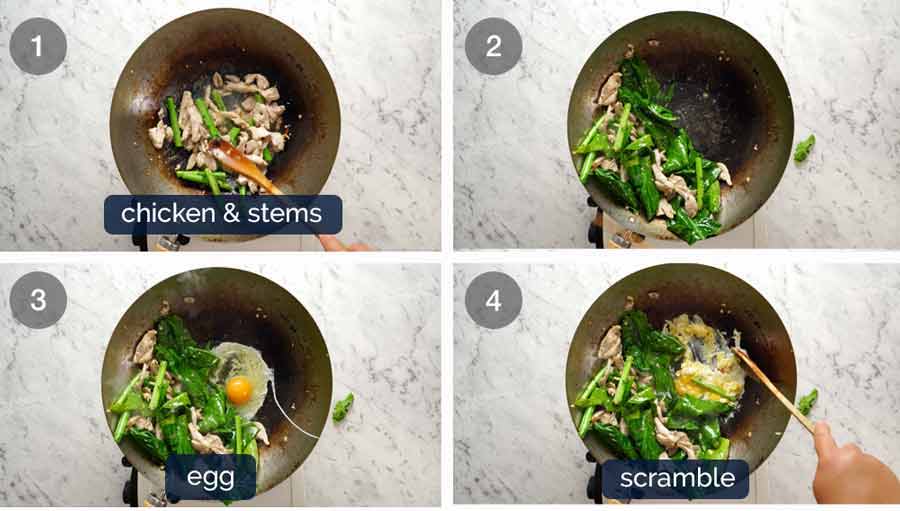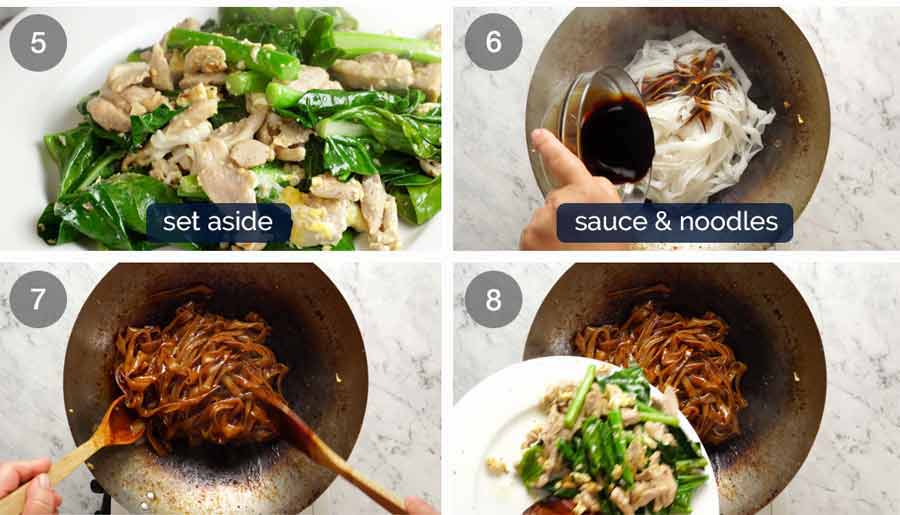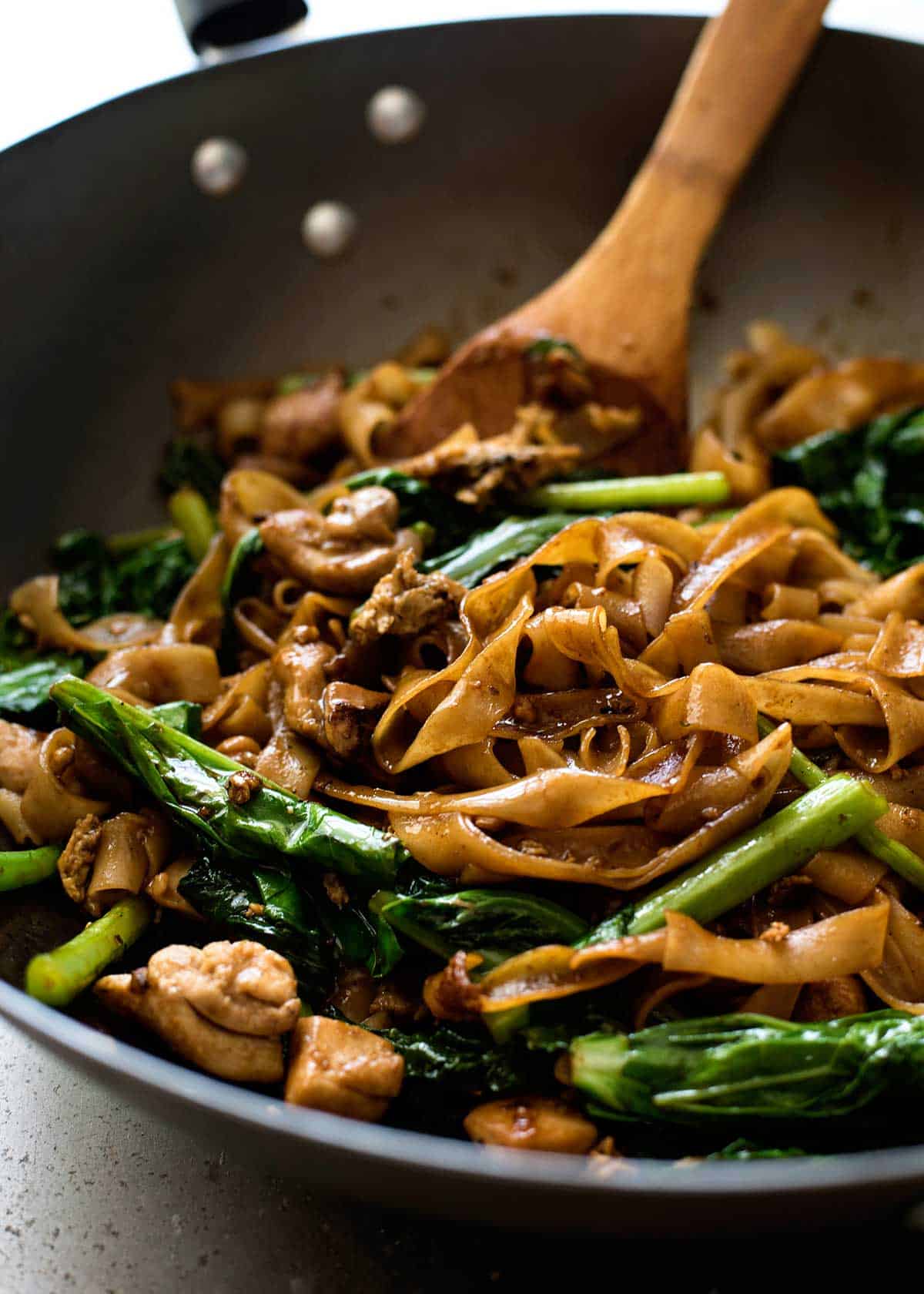This is a reader-favourite recipe included by popular demand in my debut cookbook “Dinner”!
Pad See Ew
Pad See Ew, which means “stir fried soy sauce noodles”, is an extremely popular Thai street food meal and one of the most popular noodles dishes at Thai restaurants here in Australia. Making a great Pad See Ew at home simply comes down to two things:
What goes in Pad See Ew
I can’t remember where I originally got the recipe from. Probably from David Thompson, the famous Australian chef who has dedicated his life to mastering the art of Thai cooking. I’ve made it so many times over the years, I can almost make it with my eyes closed. (Not really….but you know what I mean!) The trick? Remove the stir fry ingredients. Cook the noodles with sauce separately. Less stuff in the wok (or skillet) = easier to caramelise the noodles. At least, at home. If you’ve got a giant restaurant wok burner, you don’t need to do the noodles separately! So I had to actually measure the ingredients properly to share the recipe!
1. Pad See Ew Sauce ingredients
Pad See Ew has a sweet-savoury-touch-of-sour flavour, and this is made with a combination of the following ingredients:
Dark soy sauce – For flavour and staining the noodles a dark brown.Ordinary or light soy sauce – For seasoning (salt) and a bit of flavour. Most of the flavour comes from the oyster sauce and dark soy sauce. More on different soy sauces and when you can substitute with what in this About Soy Sauces post.Oyster sauce – Key ingredient, it’s like 10 difference sauces mixed up in one bottle!Vinegar – To balance the sweet and savoury. Some form of sour is a key ingredient in South East Asian cooking!Sugar – For sweetness.
2. Pad See Ew ingredients
And here are the other ingredients for Pad See Ew:
Noodles – Pad See Ew is traditionally made with Sen Yai, which are wide, thin fresh rice noodles that are not easily accessible. Even most Asian stores in Sydney do not sell them – you usually need to go to a Thai grocery store.So it is perfectly acceptable, and just as delicious, to make them with any wide flat rice noodles. I use dried rice noodles labelled as “Pad Thai” Rice Noodles (pictured below) because they are the widest available at the supermarket.Once rehydrated, they’re essentially Sen Yai Noodles – just not quite as wide.Chinese Broccoli / Gai Lan – This is a key authentic ingredient in Pad See Ew. Otherwise known as Gai Lan or Kai lan, it’s leafy and looks quite different to broccoli, but you’ll notice a similarity in the texture of the stems (hence the name).If you can’t find it, just sub with other Asian greens, or a combination of broccoli or broccolini + spinach.Chicken and egg – Feel free to use other proteins if you wish. But chicken is by far the most popular.
How to make Thai Stir Fried Noodles
Usually when making stir fried noodles, we toss everything together in one big pan or a wok. So it is perfectly acceptable, and just as delicious, to make them with any wide flat rice noodles. I use dried rice noodles labelled as “Pad Thai” Rice Noodles (pictured below) because they are the widest available at the supermarket. Once rehydrated, they’re essentially Sen Yai Noodles – just not quite as wide. If you can’t find it, just sub with other Asian greens, or a combination of broccoli or broccolini + spinach. But for Pad See Ew made at home, I do things differently to best replicate a restaurant flavour and minimise noodle breakage: Reason: A signature flavour in Pad See Ew is the caramelisation of the noodles. Restaurants and street vendors achieve this with super powered gas stoves with fiery heat that you’ll never find in a home kitchen. The only way to replicate that caramelisation on the noodles on a home kitchen stove is to declutter the wok and cook the noodles separately – the noodles will caramelise in 15 seconds. The other reason is that rice noodles break if you toss them too much. Doing the two-stage toss makes it much easier and faster to disperse the sauce and bring the Pad See Ew together. Trust me on this point. I’ve made a LOT of Pad See Ew at home in my time, and the two-stage toss it the easiest and most effective technique! As with all stir fries, once you start cooking, it moves very fast! So have everything prepared and ready to throw into the wok because there’s not time to be scrambling around the kitchen! Once the chicken is cooked (it should only take 2 to 3 minutes), toss the Chinese broccoli leaves in and cook for 30 seconds or so just until wilted. PRO TIP: You want to be quick here because the longer and more you toss, the more noodle breakfast you have. You’ll notice restaurants typically toss the noodles in the wok without using a wooden spoon or other tool for stirring – this too helps to minimise noodle breakage. A note on Noodle Breakage – That said, you WILL get some noodle breakage, and that is normal / perfectly acceptable. Ever notice how the wide, flat noodles in Pad See Ew served at Thai restaurants are not long strands? That’s just the way it is. In fact, traditionally, Pad See Ew is served in Thailand with a FORK or spoon instead of noodles for ease of eating. If you want to add a fresh side, try this Asian Slaw – it’s a great all rounder that goes with all Asian foods. – Nagi x
Watch how to make it
This recipe features in my debut cookbook Dinner. The book is mostly new recipes, but this is a reader favourite included by popular demand! Originally published 2014, updated 2016. Updated over the course of the years with improved photos, the addition of ingredients and process photos as well as a recipe video. Recipe also updated with a more effective cooking method – cooking the ingredients in two batches. No change to ingredients, but yields a better caramelisation and easier to cook – read in post for explanation.
MORE THAI TAKEOUT FAVOURITES
Love noodles? Me too! See my entire Noodle recipes collection.
Life of Dozer
When Dozer ate a VERY spicy piece of chilli biltong!! SaveSave SaveSave SaveSave
